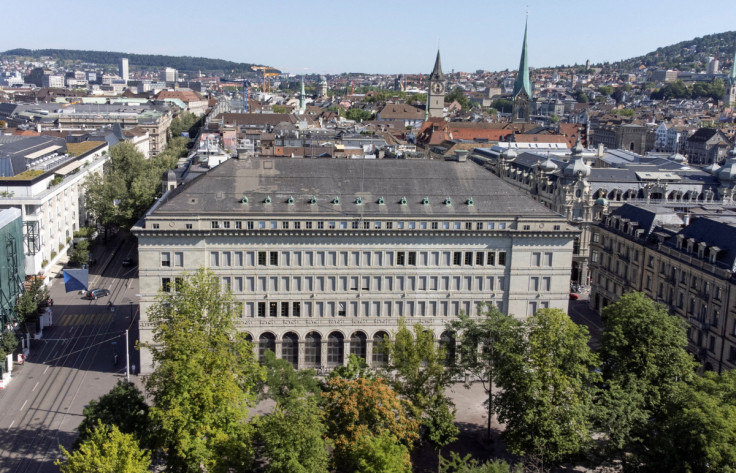SNB To Join 75 Basis Point Hike Club On Sept 22, Inflation Yet To Peak - Reuters Poll

The Swiss National Bank will join the 75 basis point rate hike club on Thursday to choke off nearly three-decade-high inflation, according to economists polled by Reuters, who also said price rises were yet to peak despite a strong currency.
Last week, SNB Chairman Thomas Jordan shared similar concerns and stated the inflation outlook was more uncertain than normal, suggesting more aggressive rate hikes were needed.
That expectation for a jumbo rate increase boosted the Swiss franc to its strongest level against the euro since January 2015 on Sept. 15, despite a similar 75 basis point hike from the European Central Bank earlier in the month.
The strong franc, which will "help rather than hurt," according to the SNB, is likely to hold those gains over the coming months as several more rate rises are likely in store.
Fifteen of 23 economists forecast the SNB - currently the only central bank in the world with a negative policy rate, at -0.25% - to hike by 75 basis points on Sept. 22 to 0.50%, in line with market pricing.
One predicted a 100 basis point hike. The rest expected a 50 basis point rise.
"The SNB is benefiting from the room for maneuver created by the ECB's 75 bps increase at its September meeting. High inflation and a barely over-valued Swiss franc are likely to prompt the SNB to use this leeway," said Alessandro Bee, economist at UBS.
"The strong mark-ups in the gas and electricity market in the short term suggest that inflation could be higher than expected. We believe the SNB may follow the ECB's September monetary policy assessment and raise its interest rates from -0.25% to 0.50%."
A strong majority of economists, 14 of 17, who replied to a separate question said the chances were low the SNB would go for a 100 basis point rise like the Bank of Canada recently did. Markets are pricing around a 47% probability of such a hike.
"Investors expect the SNB to tighten substantially at its upcoming meetings, but we think that they have got ahead of themselves," said Jack Allen-Reynolds, senior Europe economist at Capital Economics.
"After all, while headline inflation is historically high, it is low by international standards...The Bank seems comfortable with the strength of the franc, which is stemming imported inflation."
The SNB has recently departed from a campaign it waged for years to rein in the safe-haven currency, whose strength has restrained its export-reliant economy.
Still, 10 of 15 economists said inflation, which has remained above the SNB's target range of 0-2% for seven straight months, had not peaked yet. Most economists said it would peak at some point next quarter.
Price pressures will remain elevated beyond Q4 and is not expected to decline below 2% until 2024.
A majority of economists expected the Bank to hike by 25 basis points in Q4 2022, Q1 2023 and Q2 2023, taking the rate to a peak of 1.25%. However, all but one economist said the risks were skewed toward a higher terminal rate than they expected.
The ECB, for its part, is due to take its key interest rates significantly higher.
"Rate hikes are not the only tool the SNB uses for policy tightening. CHF appreciation...didn't fully prevent a surge in Swiss inflation, but contained it to 3.5% year over year at peak compared with over 9% in the euro area," noted analysts at Bank of America Securities.
"That policy mix...is why we eventually expect a lower terminal rate from the SNB than the 2.50% deposit rate we think the ECB will reach at the same time."
(For other stories from the Reuters global economic poll)
© Copyright Thomson Reuters 2024. All rights reserved.




















